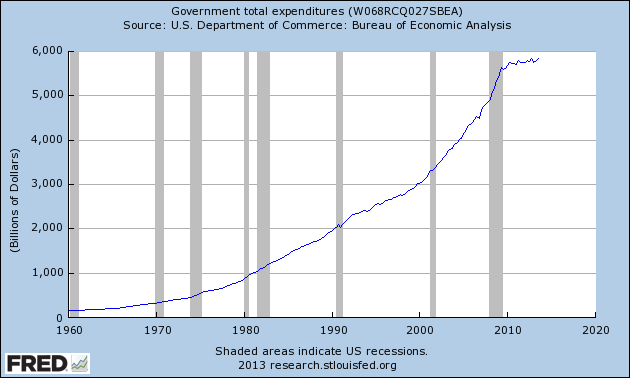There has been a recent spat on the intertubes between some people associated with the Ludwig von Mises Institute and some people associated with George Mason. In this matchup the Mises Institute people are supposed to be the boorish rubes and the George Mason people are supposed to be the serious academics.
In some ways, the stereotype makes sense. All Austrians are fairly political, but the Mises Institute people take it to a whole new level. Sometimes it's that they mix their ideology/political philosophy thinking in with their economics - and they take both seriously. Sometimes it's because they're not very serious and they just take breaks from their Ron Paul boosting and statist (i.e. - non anarcho-capitalist) bashing to talk about economics. There's a range in Auburn just like there is anywhere.
But what I think there George Mason crowd misses in many cases is that as far as scholarly engagement goes, for the most part they aren't especially distinguishable from Auburn. The biggest distinction is on the ideology front.
Painting in broad strokes, of course there are more firebreathers in terms of their actual ideas in Auburn, but the Auburn crowd has been nicer to me personally than the George Mason crowd.
If you look at their treatment of non-Austrians (particularly Keynesians), the George Mason crowd seems equally dismissive to me. They make idiotic or rude comments about Krugman or DeLong with equal frequency as far as I can tell that doesn't speak well to their commitment to "civil intellectual engagement". The public choice facets of the George Mason camp if anything make them more likely to attribute disagreement to bad faith or impure motives on the other side. And that gets old really fast.
As far as basic facts they seem to botch other ideas with equal frequency.
I'm reading
Living Economics right now by Peter Boettke to review for Free Liberal, and while he has some great intellectual history in there he also has the EXACT same claims that we see all the time from internet Austrians.
You cannot convince me that Walter Block or Robert Wenzel are any
more less civil than a handful of GMUers (the usual suspects... I'm not going to name names, because UNLIKE Block and Wenzel some of these guys will actually throw a hissy fit if I name them). And of course there are gems too. Pete Boettke (the GMU axis) and Bob Murphy (the Mises Institute axis) are both guys I disagree with a lot but perfectly civil.
So as much as I like to see them beat each other up, there seems to be a huge presumption by a lot of people that it's just obvious that we should be more dismissive of the Mises Institute people than the GMU people. It seems to me that a lot of GMUers who might not realize it should hear from an outsider that the distinction is not as strong as they seem to think. And they should probably be more critical of their own bad actors.







